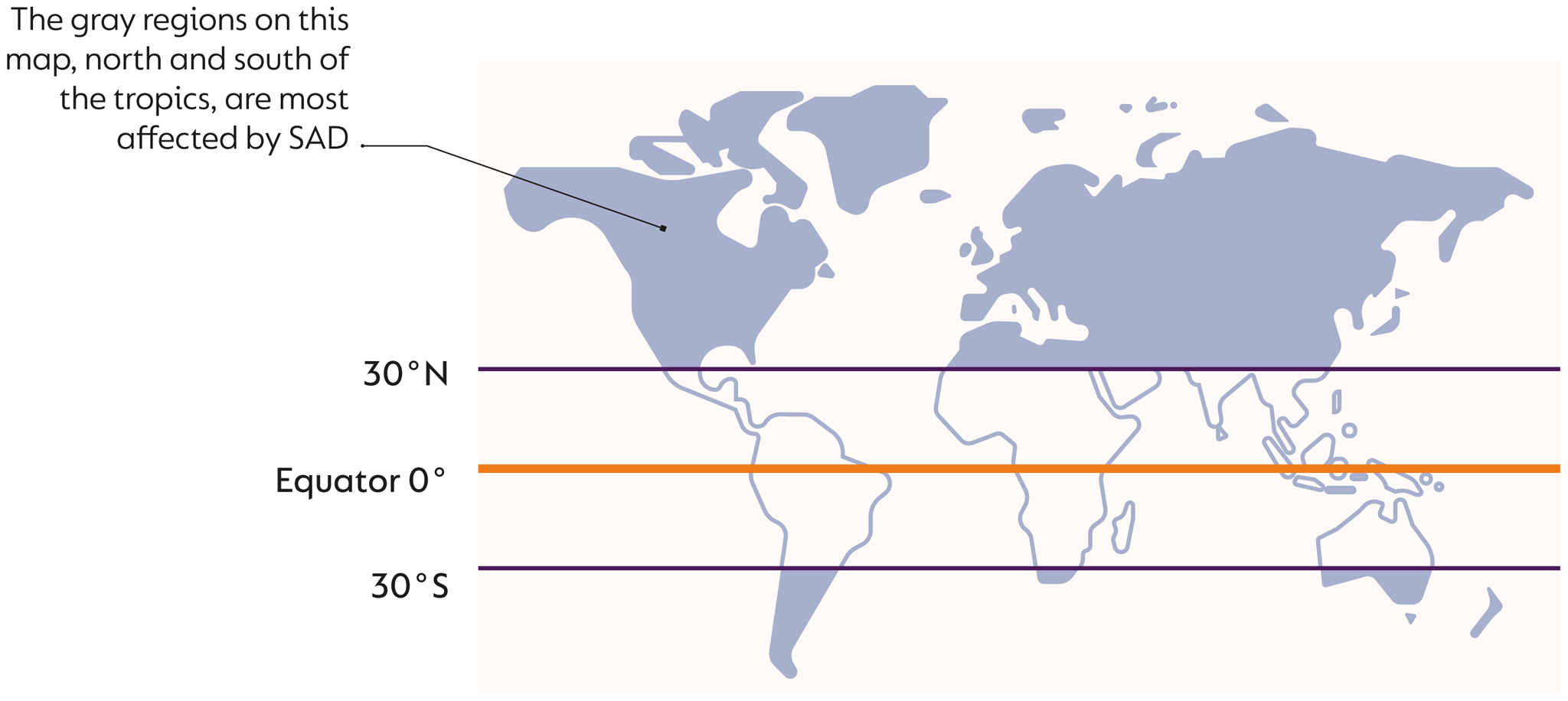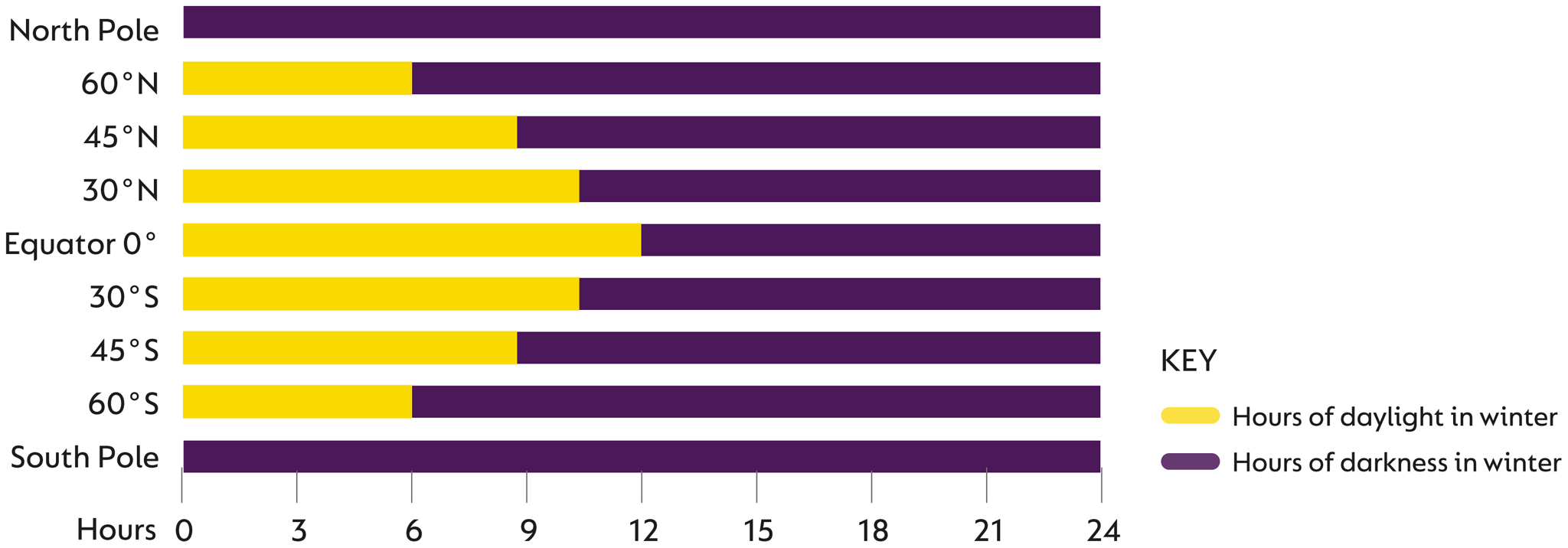Why do I need more sleep in the winter?
When nights draw in and days shorten, many people feel sluggish and want to stay curled up in bed in the morning.
There’s a reason you may feel you need more sleep in winter. Humans are programmed to respond to light and other external cues—called zeitgebers—that influence our internal body clock. In winter, we live with shorter days and less bright sunlight, which can throw off the timing of our normal sleep/wake cycle, affecting our energy levels.
Some of us find it particularly hard to adjust to seasonal changes, especially going into fall and winter. As many as one in five people experience one or more symptoms of “seasonal affective disorder” (SAD), which is a type of recurring depression. While mild cases are often called “winter blues,” some sufferers are so badly affected that they can’t function properly during winter months.
Scientists aren’t certain what causes SAD, but one theory is that sufferers’ circadian rhythms react more slowly to light cues, so they are less able to regulate their bodies’ melatonin and serotonin, which affect sleep and mood. A study found 80 percent of SAD patients suffered from “hypersomnia,” or regular oversleeping with daytime drowsiness and napping; more than half reported sleeping more than two hours extra per night in winter. Research in Finland suggests people with winter-onset SAD are at a greater risk of frequent nightmares and insomnia. Other symptoms of winter SAD include increased appetite and a craving for carbohydrates, lethargy and low activity levels, inability to concentrate, sadness, and frequent crying.
Winter daylight hours
In winter, the days are short and the nights long at latitudes more than 30° north or south of the equator, with the poles seeing almost no daylight. Limited daylight can lead to SAD, and consequently poor sleep.

n Double-tap image to read the labels
WINTER COPING STRATEGIES
• Make the most of natural sunlight. Take daily 10-minute walks outside and, when indoors, sit by a window if you can.
• Try to stick to the same sleep/wake routine and sleep for the same amount of time as you would in summer.
• Exercise is known to help improve mood, and timing it regularly will help get your circadian rhythm on track.
• Bright-light therapy is a proven treatment for SAD. In the morning, users sit near a lightbox that produces very bright light to mimic sunlight. This stimulates the brain’s neurotransmitters and helps restore normal circadian rhythm. Always use light therapy under the guidance of a doctor or sleep professional.

n Double-tap image to read the labels
YOUR SLEEP ENVIRONMENT | Why do I need more sleep in the winter?
SUMMER “WHITE NIGHTS”
The 24-hour daylight of high-latitude summers brings its own sleep challenges. In Norway, Oslo gets 19 hours’ peak summer sunshine, while north of the Arctic Circle the sun doesn’t set on Tromsø from May to July. Without the cue of fading daylight to activate the sleepiness hormone melatonin, many people find getting to sleep during light nights a real problem. Wearing sunglasses in the evening to block out light has been found to help improve sleep.
